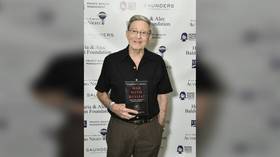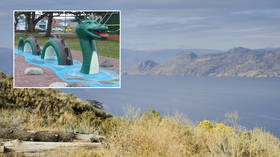Stephen F. Cohen, pre-eminent contemporary American scholar of Russia & USSR, friend of Gorbachev & advisor to Bush, dies at 81

Stephen F. Cohen, the leading American Russia expert of his generation and a celebrated historian of Russia and the Soviet Union, who became a vocal critic of Washington’s “new Cold War” with Moscow, has died at the age of 81.
Cohen succumbed to lung cancer at his home in Manhattan, on Friday, according to his wife Katrina vanden Heuvel, who is also the part-owner and publisher of The Nation magazine, where he worked as a contributing editor.
A native of Kentucky, he was a prolific and prominent scholar in his field, serving as a professor emeritus of Russian studies at Princeton University and New York University. As a frequent visitor to Russia, Cohen became well-connected among leading Soviet dissidents, politicians and thinkers in the 1980s, even befriending Soviet premier Mikhail Gorbachev.
Cohen also advised former US President George Bush, senior, in the late 1980s, and assisted Anna Larina, the widow of Nikolai Bukharin, to rehabilitate her husband's name during the Soviet era. He had earlier written a biography of the journalist and politician, which argued that had Bukharin succeeded Vladimir Lenin as Bolshevik leader, rather than Joseph Stalin, the Soviet Union would have enjoyed greater openness, and perhaps even democracy.
Breaking with many American academics and political commentators, Cohen was highly critical of Washington’s approach to Russia following the collapse of the Soviet Union. He warned of the dangers of NATO expansion and argued that much of the economic devastation seen in Russia during the 1990s could be traced to bad-faith policies and advice from the United States.
His principled, and patriotic stand, led to smears from members of the think tank racket and both liberal and neoconservative interventionists, keen to stoke tensions with Moscow. Cohen was labelled a Putin apologist. He responded by saying that he saw him as being "in the Russian tradition of leadership, getting Russia back on its feet."
After the election of Donald Trump, Cohen found himself in the crosshairs of the mainstream media for challenging the now-debunked Russiagate narrative, which he said was being used to sabotage bilateral relations and trigger a “new Cold War” with Moscow.
The unsubstantiated claim that Trump’s presidential campaign “colluded” with the Kremlin would likely make a US-Russia detente “impossible” and could even help fuel an actual war between the two nations, Cohen argued. He lamented that Special Counsel Robert Mueller’s probe into the conspiracy theory, which found no evidence of collusion, would do little to tone down the fiery rhetoric and anonymously sourced media hysteria concerning Russia and its alleged influence over the US political system.
The author of numerous books and countless articles, Cohen was a frequent guest on RT, where he often used his air time to sound the alarm over the dangerous state of US-Russia relations, lamenting that the hostility was both unnecessary and potentially calamitous.
Like this story? Share it with a friend!














